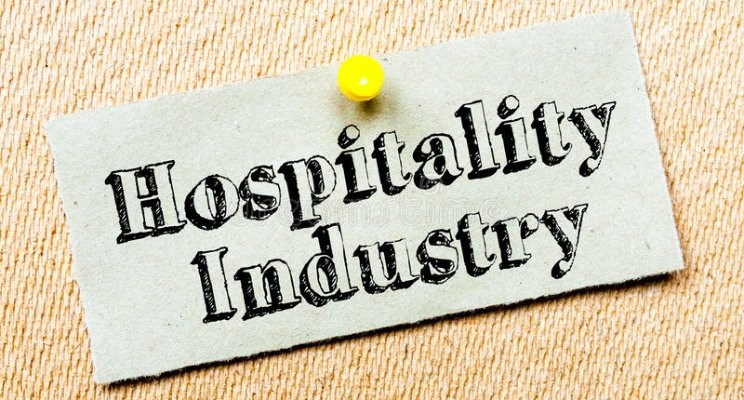According to James Brown song, “it’s a man’s world”, right?
As a hospitality management student, I had my fair share in working in the hospitality industry at a hotel/restaurant occupying different roles and titles for 6 years now. One thing that I noticed as a 20-year-old ambitious young woman is that the majority of employees were males, especially those who held top-tier executive titles. The women were a minority there, especially in the managerial positions, and this observation is backed up by statistics.
According to Travel Weekly, the number of "women in management" is quite small compared to men across several major companies, below are some of the statistics they provided:
One woman on an executive team of 25 at Las Vegas Sands (4%) and three women on the nine-person management team (33%).
Three women on the management team of 11 at Priceline Group-World's Leading Provider of Online Travel (27%).
Two women in Disney's 14-member management group (14%).
One woman on Delta's Air Line nine-member management team (11%).
One woman out of 13 on Hilton's executive committee (8%).
Two women on the 10-member executive committee at Amadeus (20%).
According to “Women in Tourism & Hospitality: Unlocking the Potential in the Talent Pool” produced by the Hospitality Industry Pipeline Coalition at March 2015, women comprise 70% of the tourism and hospitality workforce but less than 40% in managerial positions, less than 20% in general management roles and less than 8% in board positions.
Surprising statistics, right?
After analyzing these statistics, it made me think of the reasons that are stopping women from being at the top. In my experience, I discovered that women in the hospitality industry face a lot of challenges that inhibit them from being leaders. To discuss these challenges further, I listed some of them below:
1. Simply, it's a male-dominated industry
If you're a female and working in the hospitality industry, or any other industry that people think it was only meant for males, you would know the dilemma that I'm talking about. Whenever we think about bosses, managers, or leaders, a male is what comes to our mind. And sadly, that's the way how it's always been.
2. Lack of courage and motivation
We hear and watch a lot of motivational talks on TED, TV news, newspapers, magazines, and we even watch movies on successful hardworking women who confronted many challenges and became leaders. But how is it really in our own work lives. As women, we enter the hospitality industry and we immediately get judged and undervalued, that's only because they think that since we are females, we cannot handle things and deal with difficult situations professionally. But let me tell you something, a woman is capable of doing wondrous things just like any other man.
3. Balancing personal and professional life
People often are worried about women in managerial positions because they think that women cannot manage or balance their work duties and personal responsibilities. However, women have the ability to complete every task perfectly from dealing with work conflicts to caring for their kids and partners and maintain an appropriate social life. Simply, a woman is a multitasker.
4. Being underestimated and not taken seriously by colleagues/customer
Another thing that women face in the hospitality industry is being underestimated and not taken seriously by their colleagues and their customers. Whenever a customer asks for the manager, the majority of them expect to see a man, and they are less likely to take the company seriously when a woman is in charge-something that Libby Andrews, Head of Marketing & PR at Pho and Hails, has personally experienced. And when it comes to colleagues, they think that a woman is weak in the face of difficult situations and cannot handle all the workload that is given to her.
These are the most common challenges that women face whenever they decide to work in such an industry. But is it the end? Should we, as women, give up just because some statistics pointed the low number of females in top management in the hospitality industry? Of course not, despite all the numbers, and the society's perspective to female leaders, women are fighting more than ever to earn their top statuses, because they deserve it. I listed some pros of women being the top managers below:
Women are commonly skilled at multitasking and managing the household fronts too, including children. A female manager can prioritize issues and manage situations at work with the same dedication as at home.
Female managers are generally considered to be more friendly, empathetic and better communicators. And in order for hospitality industry's guests to be satisfied, it should start with satisfying employees first, and female managers can build effective employee relationships with colleagues, subordinates and even the top management. They are also good listeners and effective communicators to help resolve employee’s personal concerns with understanding and
empathy.
Anthony Balderrama, a career writer, stated in an article that women have more of a creative career path than men, meaning they have risen through the ranks by doing the actual work of the business well, rather than through the accounting or pure management path. This means they understand and acknowledge when their own staff are performing well.
Compared to twenty or thirty years ago, it is now more plentiful and much easier for women to obtain leadership roles and career opportunities. It is becoming easier for women to get into more senior management roles as the hospitality industry is becoming keenly aware of women’s abilities to lead and there are examples for the younger female population which makes up more than 50% of the workforce nowadays. Additionally, as the hospitality sector is growing at a rapid pace, the industry has to consider both male and female candidates equally for positions that traditionally have been dominated by men, because women can do it all.
And as the song continues, "but it wouldn't mean nothing, without a woman or a girl".

